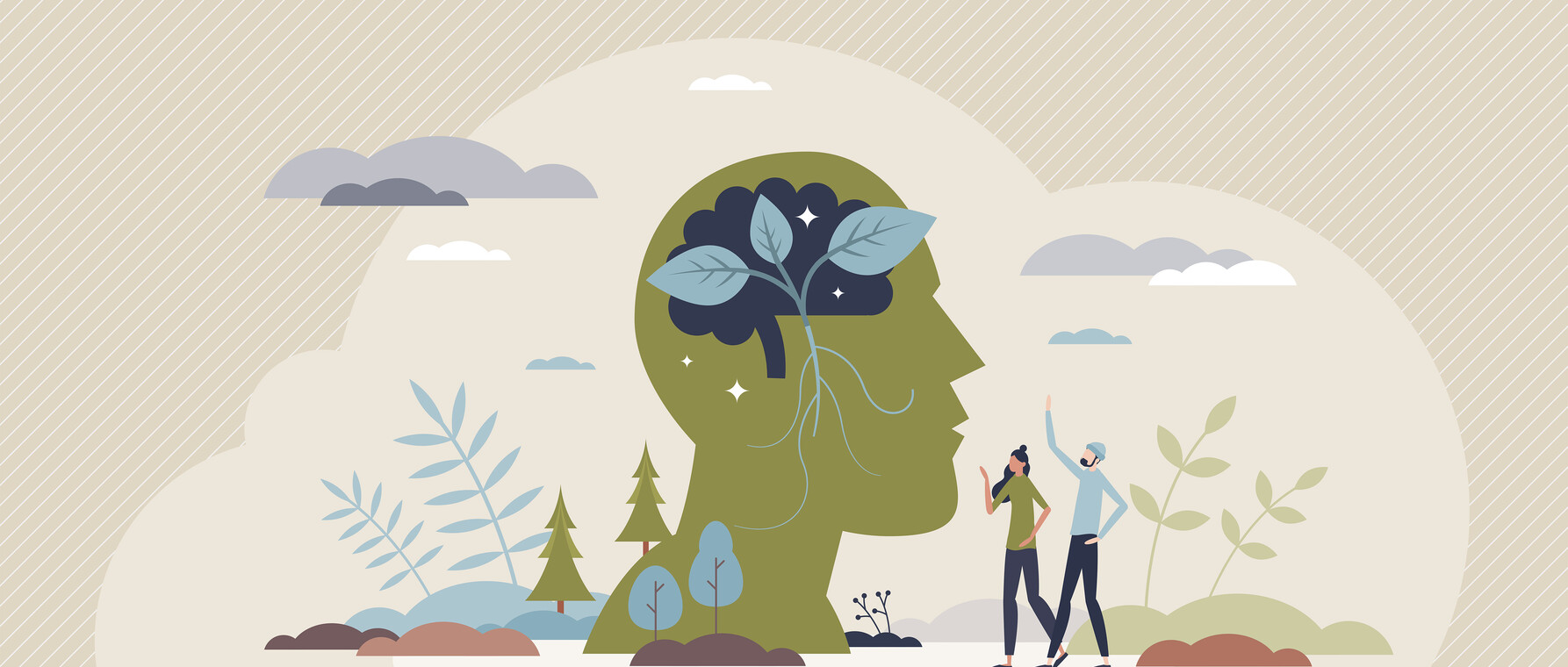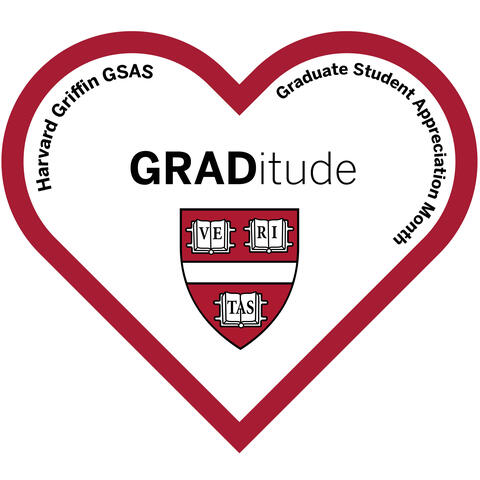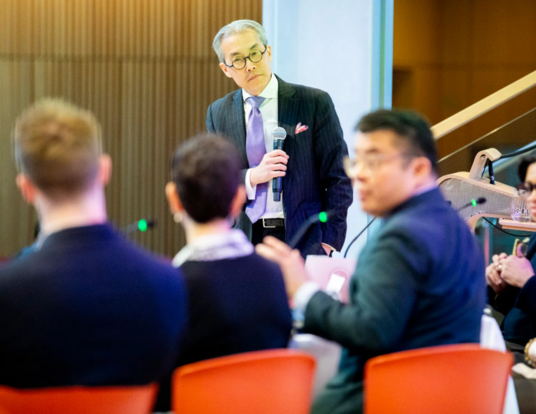B-2 B-Well: Step Back. Slow Down. Stay Curious.
Intellectual wellbeing goes beyond the classroom, library, or lab

You’re a student at the Harvard Kenneth C. Griffin Graduate School of Arts and Sciences—a global center of knowledge and discovery. You spend all day in the lab sequencing genomes, or in your office crunching massive datasets, or maybe in the library translating centuries-old Hindu scriptures. You’re surrounded by friends and faculty who are some of the most brilliant people in the world. You’ve got intellectual wellness covered, right?

Not so fast.
“In academia, it’s easy to think ‘I'm reading a lot. I'm doing research. I'm studying. I'm talking to my professors,’” says Amanda Ayers, director of health promotion at Harvard’s Center for Wellness and Health Promotion. “But intellectual wellbeing is more than just what we study. There are many ways to stimulate our curiosity and bring ourselves joy.”
Ayers says that it’s easy for busy graduate students to be laser-focused on their particular project or study and forget about the wider interests that bring them joy. She offers some tips for regaining perspective and rekindling the curiosity that is central to those dedicated to a life of the mind. It begins with an understanding of how our intellects are connected to other aspects of wellness.
Be Kind. Step Back.
At Harvard’s CWHP, intellectual wellbeing is defined as "critical thinking, stimulating curiosity, problem-solving, and creativity that isn't confined to the classroom or office but instead requires lifelong sustainment and cultivation." It's a facet of your overall wellness that interacts intimately with other dimensions of health. If your intellectual wellbeing is neglected, it can ripple into your physical wellbeing and even affect your connections with others.
Ayers emphasizes the common challenge graduate students face: hyper-focusing on their area of study. This tunnel vision can lead to neglecting other aspects of life. The first piece of advice is simple but crucial: Be kind to yourself. Recognize that this intense focus is a natural part of the academic journey and remember that you need to step back occasionally.
Nourish Your Interests
One major obstacle that PhD students often encounter is time constraints. Between research, dissertation writing, and teaching, it can feel like there’s little time for intellectual diversion. But Ayers says that even a short break, as brief as 20 minutes, can reinvigorate your intellectual curiosity. Don't wait until you've earned your PhD to explore other interests. Take a moment to visit places like the Harvard Art Museum, the Arnold Arboretum, or even the Smith Campus Center's "living walls" and pay attention to what you see. These excursions can provide a refreshing change of perspective.
Beware of the Comparison Trap
Comparison is another pitfall that plagues budding academics, particularly in elite institutions like Harvard. The urge to measure yourself against your peers can give rise to impossible expectations and, eventually, burnout. It can also result in neglecting other aspects of life that bring you joy, such as learning a new language, traveling, or practicing meditation. Ayers suggests students keep the focus on themselves, asking daily, "What did I do to nurture myself today? What brought me joy?"
Intellectual wellbeing is more than just what we study. There are many ways to stimulate our curiosity and bring ourselves joy.
—Amanda Ayers
Tap into the Power of Mindfulness
Mindfulness and meditation can be powerful tools for reconnecting with your intellectual curiosity. Ayers highlights that mindfulness allows you to step back and see the bigger picture, breaking free from the confines of hyper-focus. Harvard's CWHP offers free mindfulness classes and daily guided meditation sessions on Zoom, providing a valuable opportunity to enhance your curiosity and maintain intellectual balance.
Rediscover the World Around You
The final tip from Ayers is to slow down. The relentless pace of graduate school can blind you to the beauty and opportunities that surround you. Ayers recounts a student's revelation during one of her mindfulness classes. “After the third of four sessions, we were doing a check-in to see how everyone’s practice was going,” she says. “One of the students said, ‘There’s a building that I have walked by probably a million times on my way to class. I'd never noticed it before. But today I did.’”
“How easy it is for us to be in our minds ruminating and spiraling,” she continues. “But when we stop and take a mindful moment, we can start to see the world around us in a different way. And then we find joy in the simplest things that we miss every day.”
So, as you pursue new knowledge and discoveries at Harvard Griffin GSAS, remember that intellectual wellbeing is a crucial aspect of your overall health. By being kind to yourself, diversifying your interests, avoiding the comparison trap, practicing mindfulness, and slowing down, you can cultivate a sense of curiosity and intellectual balance that will not only enhance your scholarship but also enrich your entire life.
Until next month, remember also to visit the Office of Student Services in room B-2 of Lehman Hall for more wellness info and support. And “B-Well”!
Get the Latest Updates
Join Our Newsletter
Subscribe to Colloquy Podcast
Simplecast





